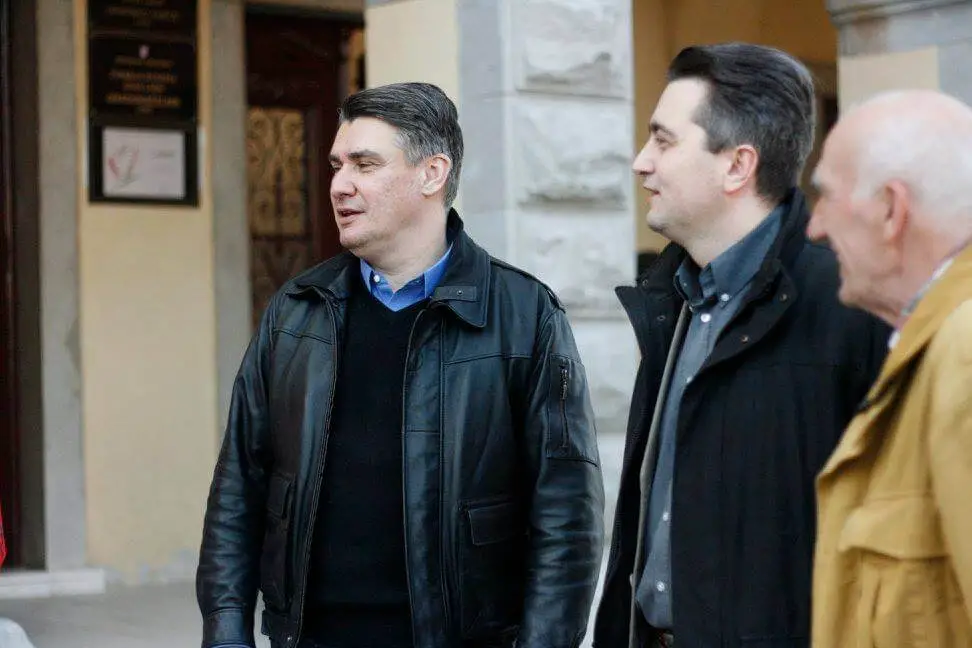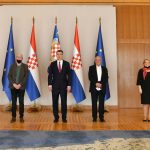On Tuesday evening, Milanović participated in a ceremony at which the permanent lighting of the steel mining tower “Šoht” at “Pijacal”, a protected complex of industrial cultural heritage, was put into operation.
The Labin Republic was a short-lived self-governing republic of Istrian Croats, formed during the mining uprising in the area of Labin in Croatia, from 2 March to 8 April 1921. The miners of Labin rebelled against the Italian administration and went on a 37-day strike and organised self-government over the mine.
The event, which historians describe as the first organised uprising against emerging fascism in Europe, was violently quelled on 8 April 1921, and at the place where it all began, Krvova Placa at Vinež, wreaths were laid by President Zoran Milanović, Labin Mayor Valter Glavičić, the Honour Guard Battalion of the Croatian Armed Forces and other delegations.
At the formal session of the Labin City Council, which was the central part of the programme, it was said that the Labin Republic was actually the first organised anti-fascist uprising which every inhabitant of Istria is proud of.
“Today, when everything is more connected than ever, to recall that in 1921 here on the east coast of the Istrian peninsula, our miners created anti-fascism as an universal value, that is a great reason to be proud,” said Labin Mayor Glavičić.
President Milanović said, speaking about the hard labour of miners, that it was good that people today no longer had to do such a hard, arduous and unhealthy job in which they could get sick or get killed.
“Our people of Labin stood up and started fighting for their rights and a life worthy of man,” said Pula Mayor Boris Miletić.
He underscored that everyone in Istria was obliged to “defend the progreessive values of the modern world”.
The City of Labin and municipalities in the area of Labinština will hold a series of events until 8 April to commemorate one of the most important historic events that took place on the Istrian peninsula in the 20th century — the uprising of Labin miners and the first organised act of anti-fascist resistance in the world, which, it was said, paved the way for Istria and Europe towards anti-fascism as the foundation of the European Union and the European civilisation.











